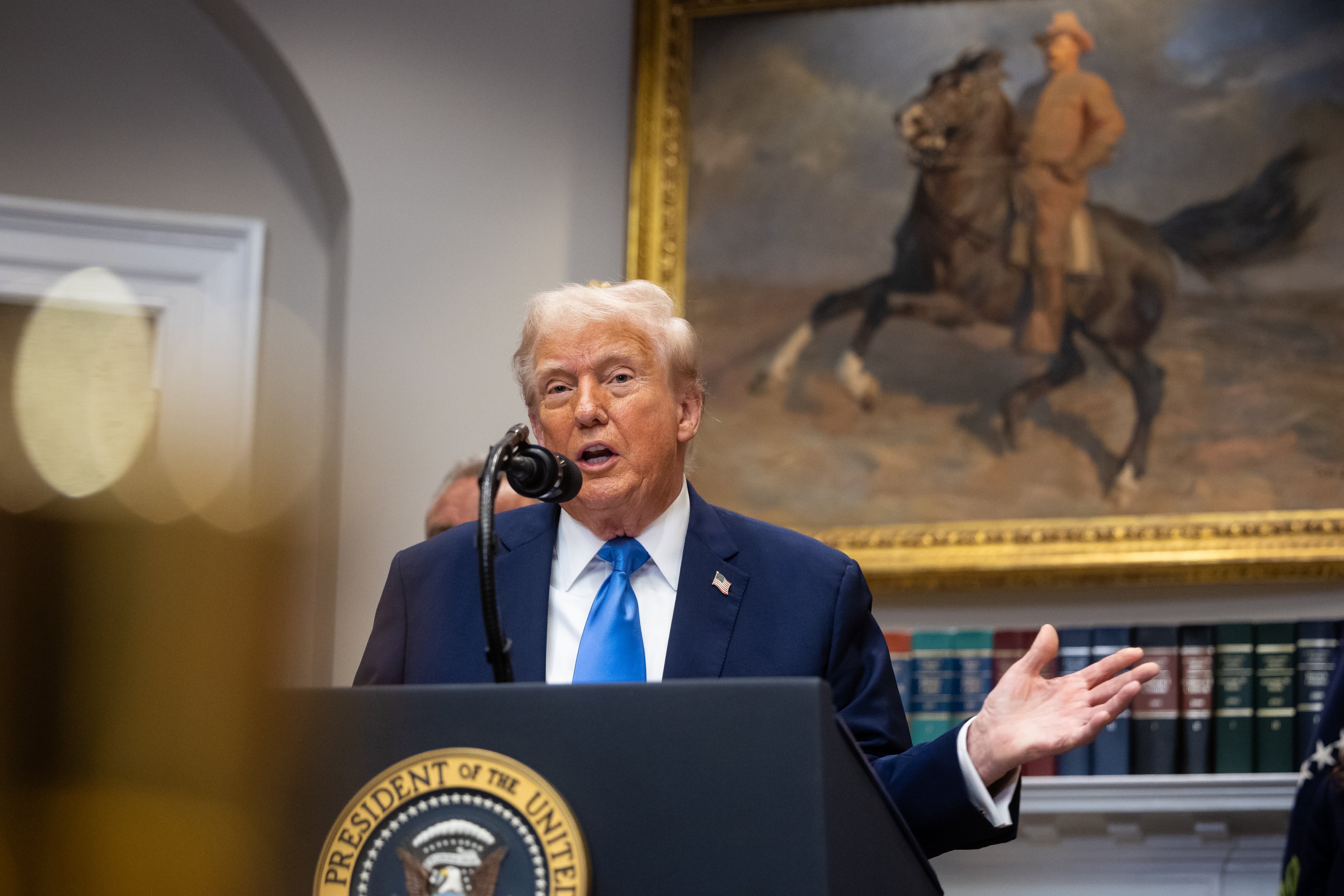By Reuters
Copyright scmp

US President Donald Trump signed an executive order on Monday designating the left-wing antifa movement as a “domestic terrorist organisation”, the White House said on Monday, after promising actions targeting left-wing groups following Charlie Kirk’s assassination.
Trump’s order said that due to a “pattern of political violence designed to suppress lawful political activity and obstruct the rule of law, I hereby designate Antifa as a ‘domestic terrorist organisation’”.
Kirk, a prominent conservative activist with close ties to Trump, was assassinated on September 10 while speaking at a college campus in Utah. A 22-year-old technical college student has been charged with Kirk’s murder.
Investigators are still looking for a motive and have not said the suspect operated in concert with any groups. But the Trump administration has used the killing as a pretext to revive years-old plans to target left-wing groups they regard as being hostile to conservative views.
Antifa, short for anti-fascist, is a “decentralised, leaderless movement composed of loose collections of groups, networks and individuals”, according to the Anti-Defamation League, which tracks extremists.
“While some extreme actors who claim to be affiliated with antifa do engage in violence or vandalism at rallies and events, this is not the norm,” it says on its website.
Trump’s 370-word executive order directs “all relevant executive departments and agencies” to “investigate, disrupt, and dismantle any and all illegal operations” conducted by antifa or anyone who funds such actions, according to the White House.
“Individuals associated with and acting on behalf of antifa further coordinate with other organisations and entities for the purpose of spreading, fomenting, and advancing political violence and suppressing lawful political speech.”
Federal police officials already investigate violent and organised crime associated with a variety of hate groups and ideological movements.
The US government does not currently officially designate solely domestic groups as terrorist organisations in large part because of constitutional protections.
But a Justice Department official with knowledge of discussions on the issue said the designation of antifa as a terrorist group will unlock expansive investigative and surveillance authorities and powers.
The person, who declined to be named, said the designation would allow the US government to more closely track the finances and movements of US citizens and to investigate any foreign ties of the loose network of groups and non-profits that the Trump administration views as antifa.
Critics of the administration have warned that it may pursue an attack on free speech and opponents of the Republican president.
The Federal Bureau of Investigation (FBI) Counterterrorism and Counterintelligence Divisions will be used to track finances – both domestic and foreign sources of funding – and attempt to identify the central leadership of antifa, the official said.
FBI surveillance and investigative operations are normally restricted in how they can target US citizens.
“The big picture focus is on foreign money seeding US politics and drawing connections to foreign bank accounts,” a White House source familiar with the plans said.
“The designation of antifa gives us the authority to subpoena banks, look at wire transfers, foreign and domestic sources of funding, that kind of thing,” the White House source said.
It was not clear which individuals would be the target of such an investigation.
Political violence experts and US police officials have previously identified far-right attacks as the leading source of domestic violent extremism. Trump administration officials have sought to portray left-wing groups as the main drivers of political violence in their remarks since Kirk’s death.
Trump’s order on Monday described antifa as a “militarist, anarchist enterprise that explicitly calls for the overthrow of the United States Government” and was using “violence and terrorism” to suppress free speech.
“Because of the aforementioned pattern of political violence designed to suppress lawful political activity and obstruct the rule of law, I hereby designate Antifa as a ‘domestic terrorist organisation’,” the order said.
But in an apparent nod to the questions about how to define antifa, his order accused it of using “elaborate means and mechanisms to shield the identities of its operatives”.
It used the same methods to hide its sources of funding and recruit new members, the order said.
Trump’s order also casts a wide net against the nebulous group.
His order says US authorities can act against “any person claiming to act on behalf of Antifa, or for which Antifa or any person claiming to act on behalf of Antifa provided material support”.
The precise legal authority Trump’s order would draw on was not immediately clear, nor was its effect. The US government does not currently officially designate solely domestic groups as terrorist organisations in large part because of constitutional protections.
Legal experts have said such steps may be legally and constitutionally dubious, hard to execute and raise free-speech concerns, given that subscription to an ideology is not generally considered criminal under US law.
During the first Trump administration there were at least two failed efforts to designate antifa a terrorist organisation, according to internal Department of Homeland Security communications viewed by Reuters.
Antifa-aligned activists, often dressed entirely in black, protest against racism, far-right values and what they consider fascism, and say violent tactics are sometimes justified as self-defence.
During Trump’s first inauguration in January 2017 scores of black-clad, mask-wearing antifa and other protesters smashed windows and burned a car in Washington.
Antifa was also involved in counter-protests to racist demonstrations in Charlottesville, Virginia, later that year.
Additional reporting by Agence France-Presse